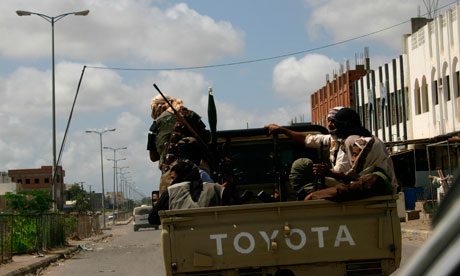Pa'gan Amum, Sudan People's Liberation Movement (SPLM) Secretary General and Chief Negotiator of the Republic of South Sudan, spoke yesterday at Chatham House. Below is some of what he said.
باقان أموم: البشير «رجل طيب» على رغم وصفه لنا بـ«الحشرات»
الاربعاء, 02 مايو 2012
أكد باقان أموم، الأمين العام لـ «الحركة الشعبية» الحاكمة في جنوب السودان، أن دولتهم الوليدة ما زالت تريد إقامة «علاقات جيدة» مع السودان. لكنه اتهم «قسماً» من النظام الحاكم في الخرطوم بأنه ما زال ينظر إلى الجنوبيين «نظرة استعلائية» ولا يعاملهم معاملة الند للند، مشيراً إلى تصريحات أدلى بها الرئيس عمر البشير إثر معركة هجليج في جنوب كردفان أخيراً وصف فيها الجنوبيين بأنهم «حشرات». وقال أموم إن هذا النوع من الكلام يعني أن الشماليين يعتقدون أنه يحق لهم القضاء على الجنوبيين كما يُقضى على الحشرات «برشهم بالمبيدات».
لكن أموم، الذي كان يتحدث أمام معهد «تشاتام هاوس» في لندن أمس، سعى إلى التقليل من وطأة وصف البشير للجنوبيين، قائلاً إنه يعرف الرئيس السوداني شخصياً وهو «رجل طيّب»، موحياً بأن كلامه ربما تأثر بأجواء معركة هجليج. لكنه أخذ عليه حديثه مجدداً عن الحرب مع الجنوبيين بأنه «جهاد»، قائلاً إن الرئيس السوداني «حوّل الحرب الأهلية مع الجنوبيين إلى حرب دينية» في تسعينات القرن الماضي ما أدى إلى خسائر بشرية ضخمة.
وزعم أموم أن تياراً فاعلاً في حكم البشير لا يريد اتفاقاً مع الجنوبيين الذين استقلوا عن الشمال في تموز (يوليو) الماضي. وتحدث عن زيارته الخرطوم قبل أسابيع على رأس وفد من «الحركة الشعبية» لدعوة البشير رسمياً إلى قمة مع نظيره الجنوبي سلفاكير ميارديت في جوبا. وقال إنه شعر آنذاك بأن المسؤولين حول البشير منقسمون، وإن تياراً منهم يضم خصوصاً مسؤولين عسكريين وأمنيين لا يريد أن تتم زيارة البشير الى جوبا. وأضاف أن الطائرات السودانية قصفت جنوب السودان بعد يومين فقط من زيارته، ما أدى إلى عودة التوتر.
وشرح خلفيات معركة هجليج، قائلاً إن القوات السودانية شنّت خمس هجمات انطلاقاً من هجليج على مواقع القوات الجنوبية التي ردت باحتلال المنطقة «إنطلاقاً من مبدأ الدفاع عن النفس»، رافضاً بذلك الإقرار بأن الجنوبيين أخطأوا باحتلال منطقة تابعة للشمال. واستعاد جيش الشمال بعد أيام هذه المنطقة المهمة استراتيجياً كونها تضم آبار النفط على الحدود مع الجنوب.
وشرح أموم الخلافات مع الخرطوم على موضوع النفط، قائلاً إن حكومة البشير أصرّت على تقاضي 36 دولاراً لقاء كل برميل نفط يمر عبر أنابيب التصدير التي تمر في أراضي السودان، في حين أن رسم النقل في الأنابيب في أي مكان في العالم لا يتجاوز دولاراً واحداً للبرميل. وأضاف أن حكومة الجنوب أوقفت ضخ النفط عبر الأنابيب السودانية لأن حكومة الخرطوم كانت تستولي عليه ولا يصل إلى الشركات التي تشتريه.
وتحدى حكومة الشمال العودة إلى المفاوضات وتوقيع اتفاق وقف العدائيات، وفق ما يقترح الاتحاد الافريقي. وقال إن حكومته «مستعدة لتوقيع سلام الآن» لكن حكومة البشير ترفض ذلك و «تتعامل معنا على أننا حشرات» وتعلن صراحة أنها تريد إطاحة سلفاكير و «تفرض علينا حصاراً تجارياً»، مشيراً إلى تهديد حكومة البشير بإنزال عقوبة الإعدام بأي سوداني يتعامل تجارياً مع حكومة الجنوب. وقال: «هل هذه تصرفات من يريد السلام؟».
وفنّد سفير السودان في لندن عبدالله الأزرق أقوال باقان أموم، قائلاً إن حكومة البشير هي من وافق على انفصال الجنوب وإنها سعت إلى علاقات حسنة مع الجنوب لكن «حكّام الجنوب لا يريدون ذلك». وأوضح أن الخرطوم أغلقت حدودها وفرضت حصاراً على الجنوب بعدما اعتدى عليها باحتلاله هجليج، و «فاجأنا التصرف لأنه جاء بعد يومين من زيارة باقان أموم للخرطوم وحديثه عن السلام». وأوضح أن البشير أعلن وقف مرور النفط الجنوبي في أراضي السودان بعدما دمّر الجنوبيون منشآت نفط الشمال في هجليج.

